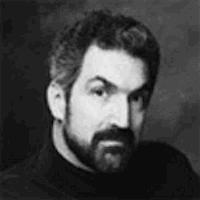| |
The Terrorist Next Door
By Daniel Pipes
New York Post
August 12, 2003
Howls of rage went up after the Joint Terrorism Task Force, guns drawn, arrested Maher Hawash in the parking lot of an Intel Corp. facility in March and placed him in solitary confinement. The protests intensified as prosecutors detained him without charges for more than a month in an Oregon jail while they pored over the evidence.
This all came as a particular shock, for Maher Mofeid "Mike" Hawash personified the American success story. A Palestinian born in Nablus in 1964 and reared in Kuwait, he arrived in the United States in 1984, earning degrees in electrical engineering at the University of Texas. He went on to work for Compaq in 1989 and became a U.S. citizen in 1990.
His career at Intel began in 1992, where he worked on video technologies. When his father fell ill, he got Intel to transfer him to its plant in Israel, where he lived for two years. He married Lisa Ryan in 1995 and fathered two children. In 1997 he published a well-received book on video graphic formats with the prestigious scientific press Addison-Wesley.
Hawash had achieved much by 2000. He worked at one of the world's greatest companies, earned nearly $360,000 a year, had a circle of friends, and was admired for his volunteer activities.
But that same year, neighbors reported to the FBI, he became noticeably more devout. He grew a beard, wore Arab clothing, prayed five times a day and regularly attended mosque. He also became noticeably less friendly.
Further inquiry found that Hawash paid up his house mortgage (interest payments go against Islamic law) and donated more than $10,000 to the Global Relief Foundation, an Islamic charity subsequently closed for financing terrorist groups. Early in 2001, he went on pilgrimage to Mecca. And "Middle Eastern males" were seen coming and going from his house.
Friends and co-workers condemned such information as "guilt by association." Nothing in Hawash's actions, they insisted, justified his incarceration, and they made their views known. They launched FreeMikeHawash.org and wrote letters to the editor. They set up a legal defense fund and staged protests on the streets of Portland, Ore.
Hawash's former boss at Intel, Steven McGeady, became his champion, portraying Hawash as an average "Arab-American with a job and a family." McGeady dubbed the arrest "Alice in Wonderland meets Franz Kafka" and dismissed the charges against Hawash as "baseless" or "completely insane."
Supporters filled Northwest newspapers with alarms. One professor portrayed Hawash's incarceration as "part of a consistent pattern of suppression of civil liberties." Columnists and letter writers compared the United States to a "Third World country," Orwell's "1984," Nazi Germany or the Soviet Union. Militant Islamic groups like the Council on American-Islamic Relations saw in Hawash's arrest "serious damage" to the standing of American Muslims.
Hawash's high-powered career and supporters together turned him into the symbol of the pious Muslim victimized by a biased and overzealous justice system.
And then, on Aug. 6, this whole illusionary edifice came crashing down: Hawash pleaded guilty to conspiring to help the Taliban. He also agreed to cooperate fully with the prosecution and waived his right to appeal his conviction and sentence. In return, the government dismissed the other counts against Hawash.
How did his supporters take this news? A media search turns up not a single mea culpa. Instead, they responded with denial and silence. "I don't know if I feel betrayed. I'm not dwelling on that now," said one of his staunchest sympathizers. "I want to hear directly from him before I believe it," said another. At the Aug. 6 hearing, reports the Oregonian newspaper, "The throngs of friends and supporters who publicly protested on Hawash's behalf at previous hearings" were noticeably absent. Militant Islamic lobby groups lost their voice.
In short, while Hawash confessed to his crime, his supporters refused to admit their mistakes.
There are two lessons here. First, profiling can work. Alert neighbors reporting on apparently militant Islamic activities brought Hawash to law enforcement's attention.
Second, sympathizers of terrorist suspects are entitled to express surprise and tell heart-warming stories about them. But shrill charges of racism and appalling comparisons to Nazi Germany impede the U.S. government's efforts to protect Americans.
Comment on this article using the "Post Reply" button.

|
|











